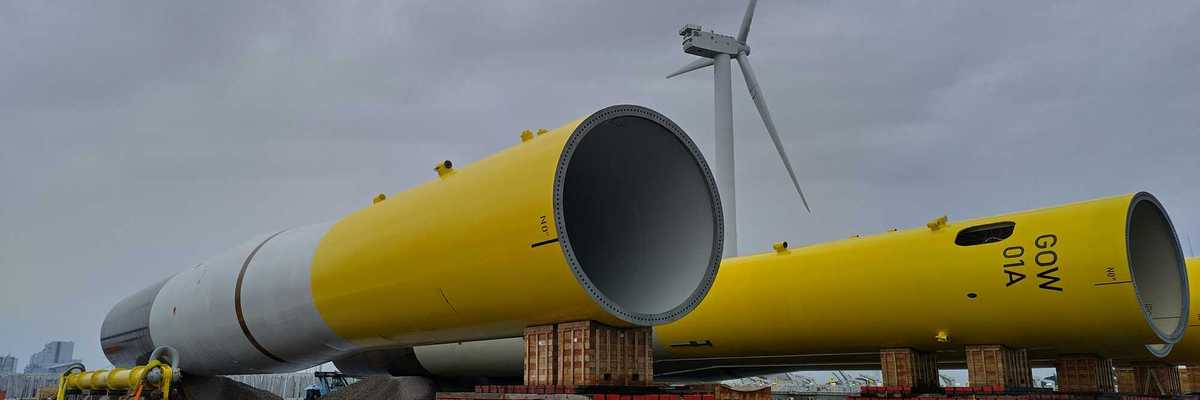rainfall
Virginia farmers struggle with heat and drought during tough growing season
A combination of extreme heat and prolonged drought devastated Virginia vegetable crops this summer, forcing farmers to adjust their methods in hopes of preserving their harvests.
In short:
- Virginia vegetable farmers faced one of the driest and hottest summers on record, severely impacting crops like tomatoes, peppers, and eggplants.
- Flash droughts, intensified by climate change, quickly developed and worsened, leaving plants without sufficient moisture during key growth periods.
- Some farmers experimented with no-till farming and irrigation but found these methods insufficient without more consistent rainfall.
Key quote:
“This growing season had a drought that was combined with an incredibly long hot spell, and that was the real problem.”
— Hana Newcomb, farmer at Potomac Vegetable Farms
Why this matters:
The increasing frequency of flash droughts threatens food security by destabilizing growing seasons. Climate change is making weather patterns more unpredictable, leaving farmers vulnerable to crop failures without long-term solutions.
Midwest floods highlight infrastructure vulnerabilities nationwide
Recent flooding in the Midwest, particularly around Minnesota's Blue Earth River, emphasizes the urgent need to reinforce aging infrastructure against extreme weather events worsened by climate change.
In short:
- The Rapidan Dam, built in 1910, nearly failed under intense rainfall, highlighting its vulnerability.
- Extreme weather events are becoming more frequent and intense due to climate change, outpacing current infrastructure design capacities.
- Experts warn that similar infrastructure nationwide is at risk, with potential cascading effects on ecosystems, economies and public health.
Key quote:
“We’re not prepared for this new climate regime. While we’re figuring it out, we’re at risk of lots more of these challenges.”
— Whitney Clark, executive director of Friends of the Mississippi River.
Why this matters:
In recent years, the drumbeat of extreme weather events—hurricanes, floods, wildfires and heatwaves—has grown louder and more insistent, a stark reminder of our planet's changing climate. This surge in natural disasters is putting unprecedented strain on infrastructure, much of which was built during a time when the climate was more predictable and less severe.
Flooding crisis in southern Germany prompts chancellor’s visit
Chancellor Olaf Scholz, alongside Bavaria's State Premier and the Interior Minister, visited flood-ravaged Reichertshofen, pledging swift government support amid severe destruction.
In short:
- Heavy rainfall caused the Paar River to overflow, flooding Reichertshofen and forcing over 3,000 evacuations.
- Emergency workers, supported by 20,000 volunteers, are engaged in extensive rescue and cleanup operations.
- Local business owners and residents stress the need for immediate and effective government assistance.
Key quote:
"This is the fourth time this year that I have gone to a specific area of operation. We will do everything we can...to ensure that help can be provided quickly."
— Olaf Scholz, Chancellor of Germany.
Why this matters:
Flooding in Germany has become increasingly frequent and severe, disrupting lives and highlighting the urgent need for robust climate action and disaster preparedness measures. The affected communities face immediate challenges, including displacement, property damage, and economic hardship.
Related EHN coverage:
Extreme rains in Oman and UAE linked to climate change
A recent study suggests climate change, driven by fossil fuel emissions, likely intensified the unprecedented rains in Oman and the UAE, causing significant destruction and fatalities.
In short:
- The World Weather Attribution's analysis points to climate change as the main driver behind the recent extreme weather in the UAE and Oman, marking a significant increase in rainfall intensity.
- This catastrophic event resulted in the deaths of 25 people across both countries and disrupted major infrastructure, including Dubai's international airport.
- The report emphasizes that no other factors besides global warming have been identified to explain the surge in precipitation.
Key quote:
“The UAE and Oman floods have shown that even dry regions can be strongly affected by precipitation events, a threat that is increasing with increasing global warming due to fossil fuel burning.”
— Sonia Seneviratne, WWA member and professor at Zurich’s ETH university
Why this matters:
Climate change may be altering weather patterns, shifting the paths of storms and worsening the intensity of rainfalls. This shift disrupts typical weather in regions like typically arid regions like Oman and the UAE and poses significant environmental and health challenges, such as increased risk of floods and waterborne diseases.
UK's impending summer water crisis due to infrastructure woes
Despite the UK's record rainfall, scientists warn of possible water shortages and hosepipe bans this summer if dry conditions prevail.
In short:
- The UK's lack of water storage and outdated infrastructure make it susceptible to "all or nothing" rain patterns, leading to potential summer shortages.
- A report predicts a significant water shortfall by 2050, exacerbated by climate change and increasing demand.
- Current strategies may include prioritizing public water supply and imposing bans on non-essential water use.
Key quote:
"We need to realise that our water infrastructure is creaking and required billions of pounds of investment."
— Hannah Cloke, professor at the University of Reading
Why this matters:
The UK faces more extreme weather patterns, including longer periods of drought and unpredictable rainfall. These changes challenge the traditional water management strategies and necessitate significant investment in infrastructure to capture, store, and distribute water more efficiently and resiliently. Without this investment, the UK risks not having enough water to meet its needs during prolonged dry spells, a scenario that could become increasingly common.
By 2050 many of the world's major cities will face surface water shortages, spurring regional conflict and competition for scarce resources.
Climate change menaces China's ancient heritage sites
Peru battles worst dengue outbreak as climate warms
Peru is taking extraordinary measures such as banning households from filling vases with water, as it battles its worst dengue outbreak on record, a crisis that experts have linked to increased rainfall and warmer temperatures as the climate changes.









